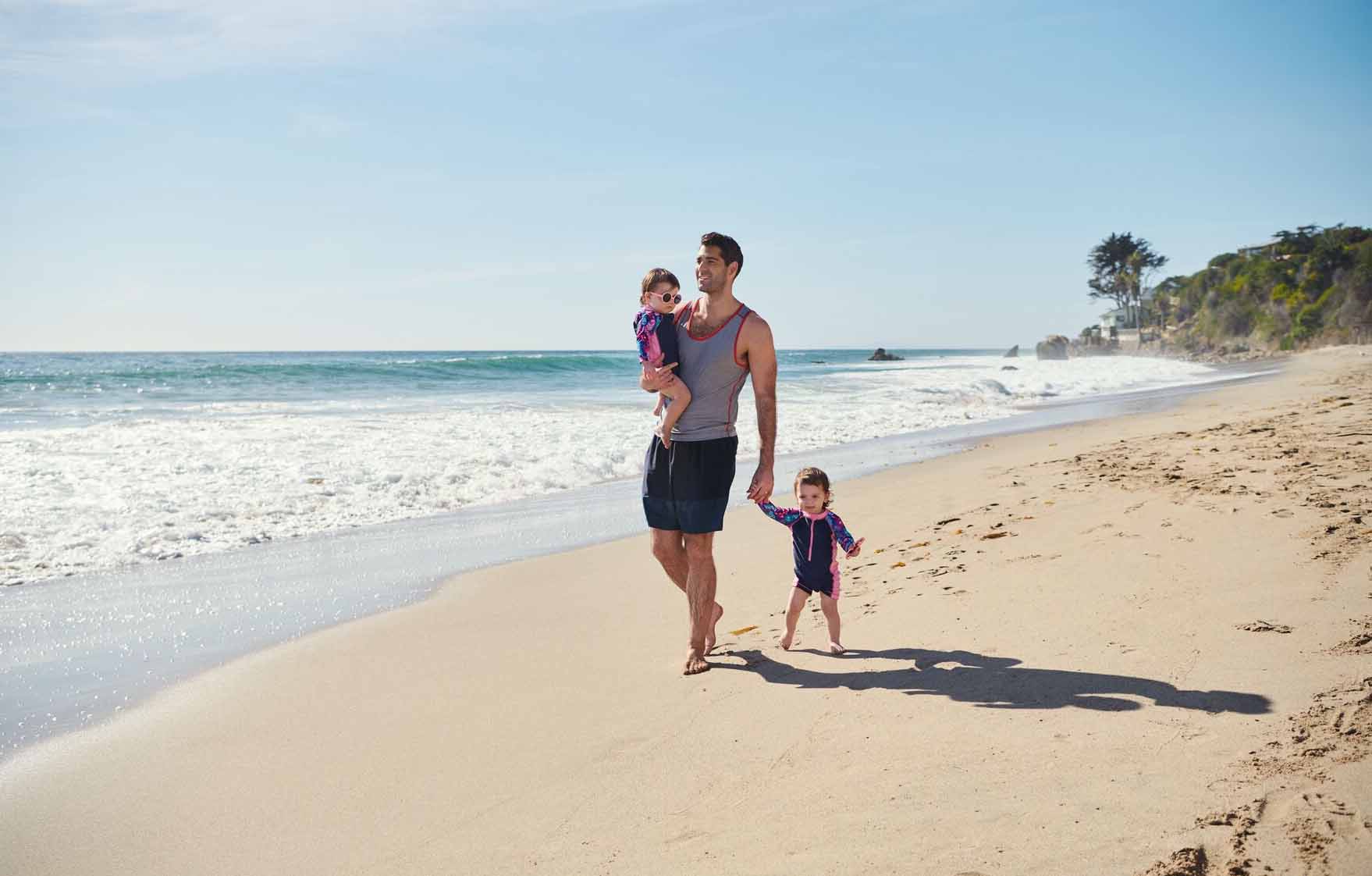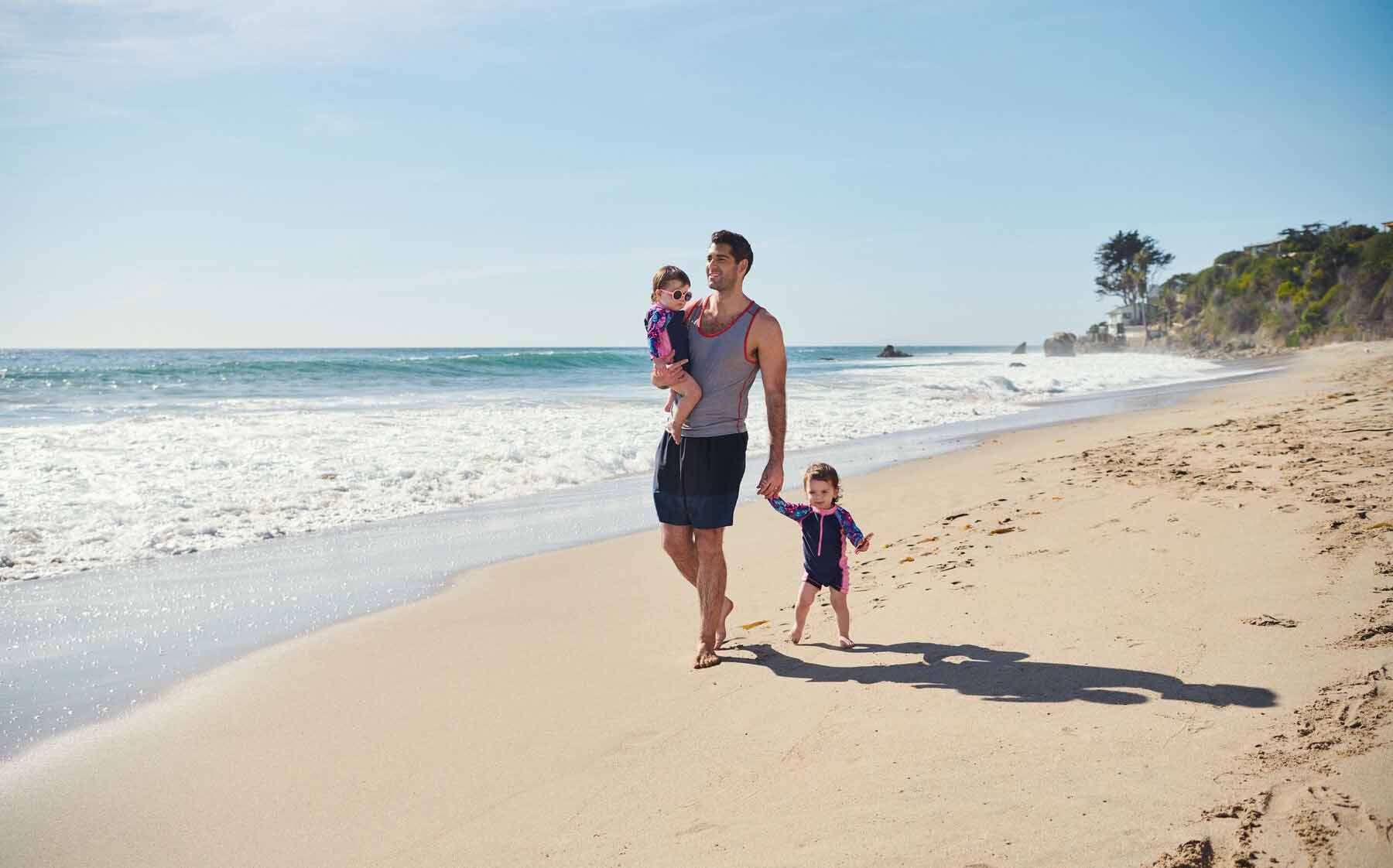Sun protection beyond SPF


With summer officially here, it’s a good time to brush up on our sun protection knowledge. Though sun care is important all year round (yes, even in winter!), July and August probably mean long hot days in the sun for many of us.
Of course, we all know sunscreen is vital any time we are going to be exposed to the sun, but what else can we do to protect ourselves from its rays?
Protective Clothing
“Protective clothing is your best friend,” says Dr. Tania Elliott, chief medical officer at health-care management company EHE.
She recommends UVA/UVB sunglasses and wide-brimmed hats for starters. She also suggests checking out clothing brands such as ExOfficio, which makes clothes with built-in SPF.
Monitor Exposure
It’s important not to discount the strength of the sun’s rays, and how quickly a sunburn can happen.
“Know that it only takes 10 minutes of intense sun exposure for your skin to burn, says Nebraska-based dermatologist and RealSelf contributor Dr. Joel Schlessinger. “At the first sign of skin reddening or tingling, seek shelter indoors right away so that you don’t prolong exposure and worsen your sunburn.”
Protect Your Head
“Don’t forget your scalp!” Schlessinger says. “If left uncovered, your scalp is at risk for a sunburn, especially if your hair is parted. This area, along with your ears, is highly sensitive to sun exposure and rarely gets the SPF protection it needs.”
Schlessinger says the best way to prevent a sunburned scalp is to cover your bases with sunscreen application – he recommends a powdered sunscreen if you don’t like the feel of liquid sunscreen in your hair.
However, don’t underestimate the power of covering up, he says.
“I love the idea of hair sunscreen, but the best protection possible is still a hat. Wearing a hat can protect your scalp, as well as other areas you might have forgotten [to put] sunscreen [on], like the ears, hairline and the back of the neck. Staying in the shade or under an umbrella can also help prevent a sunburned scalp.”
After-sun Care
When it comes to after-sun care, Elliott recommends aloe-based products to soothe the skin, cool showers, ice packs, cold cucumbers on the eyelids and, crucially, hydration – drink your water, folks!
Schlessinger adds ibuprofen to the after-sun care list if you do end up with a burn.
“Taking the recommended dose of an over-the-counter ibuprofen like Advil can have an anti-inflammatory effect on your sunburn,” he says. “While Tylenol [acetaminophen] will help alleviate the pain associated with a burn, it does not have the same anti-inflammatory effect as ibuprofen. When you take ibuprofen, you aren’t just addressing symptoms like redness and swelling, you are also helping to prevent long-term skin damage. For best results, take ibuprofen within four to six hours of sunburn to prevent it from becoming worse. Continue taking ibuprofen as directed for the next 48 hours and be sure to drink lots of cold water throughout the day to stay hydrated.”
Enjoy the summer, everyone, and stay sun-safe!
